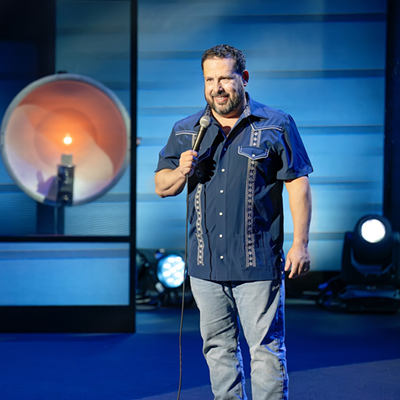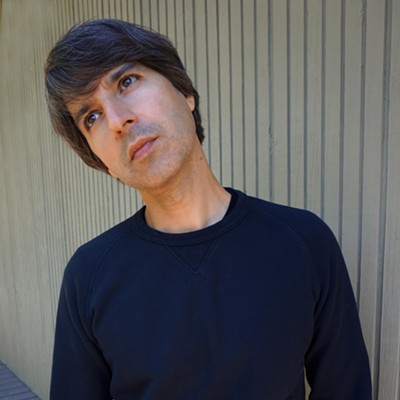POETIC FICTION. Is it fate that brings you to the work of a poet? Or is it the poet's books--books of fiction filled with characters and plot--that usher you in?
I discovered Fanny Howe's work a year ago and gulped down three of her books with gusto. When would she write a new novel, I wondered?
"It's my last fiction work," Howe revealed about Indivisible, written three years ago.
Bereft, I prodded on. What do you mean?
"I see it as the natural end of an arc that I started with First Marriage, written when I was 27. It's been a long arc.
"But I have to make a distinction," she added. "I'm not necessarily stopping prose writing, just fiction. I always found I was chasing after holes, and that's not a good way to write."
Of her 20 books, 12 are indeed volumes of poetry. But realize that Howe's poetic form includes prose, short block scenes, singular voices that one follows like characters. And her fiction--well, it's just plain poetic, even filmic with gaps and interesting juxtapositions. No printed TV here, no heavy reliance on dialogue or plot twists.
Howe comes from a creative and political family, and it's that background that informs her multi-genre work. Her mother was a playwright and actress. Her father was a Harvard law professor and civil rights activist. Her sisters and a cousin form a clique of artist, poet and playwright. Howe has spent the last three decades lecturing in creative writing, mostly at UC San Diego. She left teaching two years ago the way she left fiction--she just came to the end of its arc--and now lives and writes on Martha's Vineyard and occasionally teaches.
As we spoke, I began to understand that I wouldn't be losing a fiction writer who experiments with narrative and form, but gaining a poet who is, as Quincy Troupe describes, sly and wicked, "always shifting between the social, the political as well as linguistic and literary concerns, an artist always writing from the cutting edge."
"It's the content that drives me," Howe says of her creative process. "I've always been concerned with how powerlessness affects us. Seeing the brutal end of it is what intrigues me."
And the shape just follows the content.
"More and more, the form is itinerant. I'm responding day-by-day to the quotidian world. I'm not trying to build an icon out of the poem."
That's evident in her choice of themes, whether it's the bleak trek of a homeless woman participating in the illegal sale of body parts at the California-Mexico border or the story of a woman who has locked her abusive husband in a closet on Page 1 and leaves him there for the rest of the book while characters plumb the depths of race relations and spiritual faith. Much of her poetry has a unifying theme as well, following characters Howe finds in the larger political world.
"It's almost that I'm hearing voices," she admits.
Howe's newest book is Gone, in which she experiments with the shape of the poem. Unlike some of her earlier work--blocks of almost filmic "scenes"--Howe's form has shifted.
"The style is now quite short--stanzas, maybe 10 lines in all. I think of one line as a new word. So then the poem equals one sentence, really."
The work explores the split in personality as it grapples with religion and the physical or erotic self. Howe wonders, "What does it all mean? That's what I'm asking."
She's been asking this question all her life.
"I was raised by committed atheists. I've sort of done a forced conversion on myself in order to change my vocabulary. I hated the vocabulary of psychology. So I found another one in the realm of religion.
"But I'm driven by a severe case of doubt. It doesn't say much for my faith. But I do love the Eucharist, the poverty end of it."
These contradictions draw you into the work, whether fiction or poetry. "I think the highest thought is a paradox," offers Howe. "I love bewilderment, but not confusion. Confusion is a more panicky place. The most enlightened place you can be is a space of ambivalence."
Howe reads from her work on Wednesday, March 26, at 8 p.m. as part of the UA Poetry Center Spring Reading Series, co-sponsored by POG and Chax Press. It's held at the Modern Languages auditorium located south of Second Street and Mountain Avenue. Admission is free as is parking at meters or on Zone 1 Lots. For details, call 626-3765.







